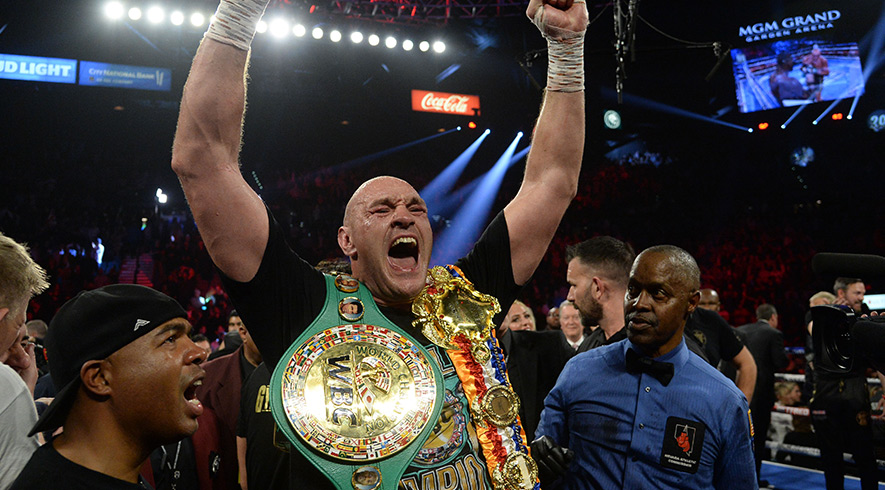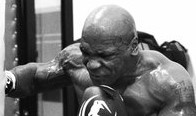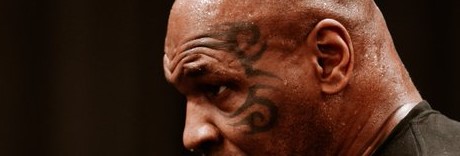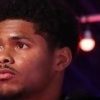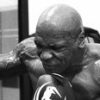By: Hector Franco

“Bernard Hopkins has put himself up there in the list of all the great middleweights.”- Larry Merchant.
Throughout the social media age that includes platforms like Twitter, Facebook, and Instagram, there has been a plethora of memorable moments in combat sports from the world of boxing and mixed martial arts.
For the boxing world, a vast majority of the attention has primarily focused on Floyd Mayweather Jr., Manny Pacquiao, and Saul “Canelo” Alvarez. These men have been at the forefront of boxing’s social media age garnering the highest-selling PPV events and bringing boxing into mainstream sports discussions.
In today’s age, we live in a society that emphasizes and values economic achievements over accomplishments that take place inside the squared circle.
Often, fights of the past are disregarded or undervalued. Many don’t put into context the importance of when a fight takes place.
Before the age of social media, YouTube, and when Internet boxing media was still in its infancy there was one fight that historically may trump all that came after.
On September 29, 2001, at Madison Square Garden in New York City, Puerto Rico’s Felix “Tito” Trinidad took on Philadelphia’s Bernard “The Executioner” Hopkins in the finals of Don King’s Middleweight World Championship Series tournament that would crown the first undisputed middleweight champion since Marvelous Marvin Hagler in the 1980s.
The winner would be presented with a bronze sculpture trophy of the great Sugar Ray Robinson, adding more prestige to the tournament as it was made in conjunction with the Robinson family.
All the fights would take place at Madison Square Garden in New York.
TOURNAMENT
In today’s era, tournaments are more commonplace with the advent of the World Boxing Super Series; however, in 2001, they were a rarity.
The tournament would feature the best middleweights in the sport at the time with then WBC champion Keith Holmes, two-time WBA champion William Joppy, the twelve-defense IBF champion Hopkins and then two-division champion Felix Trinidad.
Trinidad was coming off the best year of his career in 2000, where he unified the IBF and WBA junior middleweight titles, winning a unanimous decision over 1996 Olympic gold medalist David Reid and scoring a 12th round stoppage over Fernando Vargas in arguably the greatest junior middleweight fight in history.
In many respects, the tournament was built around Trinidad to continue his run of elite big stage fights that started in 1999 with Pernell Whitaker.
Don King promoted three of the four fighters in the tournament, but he needed Hopkins to make sure it was viable to establish the one true middleweight champion.
“To explain how complicated the process was, it takes only two words, Don King,” stated former Senior Vice President of HBO PPV Mark Taffet on a special episode of the now-defunct HBO Boxing podcast that focused on Trinidad-Hopkins. “I never worked with anyone who once you get them to say yes was more focused and more cooperative than Don. We actually talked about the tournament a few months. Then we decided on the middleweight division because Don was really focused on getting Tito Trinidad to be on a platform on top of the boxing world.
“And he felt it was the right time for Tito to fight at the middleweight level and against some of the best in the world. He knew that he would be able to bring William Joppy and Keith Holmes into the tournament, but of course, that Bernard Hopkins would be the most difficult.
“The deal between Don and Bernard was actually done on the day of the press conference to announce the tournament.”
Before he was known as The Alien and held the record for being the oldest fighter to win a world title in boxing history, Hopkins was a man out for recognition.
“I didn’t feel that I was getting the respect that I always felt that I had to fight for,” Hopkins said on the HBO Boxing podcast. “And what kept me always in shape, always with a chip on my shoulder, in fact, two chips on my shoulder, I always felt like I wasn’t getting respected, and this was the time, I should get my respect.”
The tournament’s first-round saw Hopkins win a wide unanimous decision over Holmes on April 14, 2001. The fight was a rather tepid affair filled with fouls, but Hopkins dominated in adding the WBC middleweight title to his resume.
The second fight in the first round was between Trinidad and Joppy for the WBA middleweight title on May 12, 2001. The atmosphere at Madison Square Garden mimicked a pro-wrestling match from the late 1980s with the absolute frenzy of Puerto Rican fans in attendance.
Trinidad decimated Joppy scoring three knockdowns en route to a fifth-round stoppage, further cementing himself as arguably the best in the world pound-for-pound. The Puerto Rican would become the first fighter since Ray Leonard to win a middleweight title in his first fight in the weight class.
The stage was then set for the tournament finals with Trinidad to take on Hopkins on September 15, 2001.
PRESS CONFERENCES

To promote the fight, the fighters went on a four-city press tour in New York, Philadelphia, Miami, and San Juan, Puerto Rico. It was on this press tour that the mind games that Hopkins would implement first started.
For Hopkins, while the tournament represented an opportunity for more recognition and bigger paydays, Trinidad epitomized everything the Philadelphia fighter wanted.
Not only was Trinidad one of the biggest stars in boxing at the time, but also one of the most accomplished. Similar to Hopkins, Trinidad made his mark in one weight class.
At welterweight, Trinidad defended his title 15 times and unified the WBC and IBF titles in the division in his final bout in the weight class. He is only second to all-time great Henry Armstrong in welterweight title defenses who had 19. To this day, he is still the record holder for the longest-reigning welterweight champion in boxing history at six years, eight months, and 14 days.
Adding that he was a three-division champion winning unified titles at junior middleweight and a title at middleweight gave the Puerto Rican Hall-of-Fame credentials before the age of 30.
Hopkins, however, who had now made 13 defenses of his IBF middleweight title and had held the title since 1995, was not intimidated by Trinidad or the magnitude of the event.
“Why should I play second to a guy because of who he is?” Hopkins said in an interview with Graham Bensinger in 2017. “I’m not going to sit idle or quietly when what I have done so far and just let this promotion be just about Felix Trinidad. You have to promote this equally or promote me as the guy Trinidad has to beat. He’s coming to get my titles.”
In New York, the promotion turned somewhat personal when Hopkins began to become hostile and not only go after Trinidad, but his Puerto Rican fan base. During a verbal exchange with Trinidad, Hopkins opened the gates of disrespect by grabbing the Puerto Rican flag and throwing it on the ground.
“The flag had to be put down to get their attention,” said Hopkins. Grabbing that attention was grabbing the media attention, and grabbing the media attention was to do something that they thought would never be done because it was bold; it was in some people’s case classless.”
The press conferences in Philadelphia and Miami went down without any significant altercations. However, when the press tour got to San Juan, things would take a turn for the worse.
At the Roberto Clemente coliseum, Hopkins would once again throw down the Puerto Rican flag, but this time in front of a large group of Puerto Ricans. Hopkins barely escaped the wrath of the fans who chased him out of the building, forcing him to make a nearly 20-foot drop to reach the ground level.
“Puerto Rico is the most patriotic place I’ve ever been to,” said Alan Hopper, the head of Don King’s Public Relations at the time on the HBO Boxing podcast. “And towards that end, they found that Bernard’s white limousine that he was using that day was outback, and they lit it on fire. It was no small thing that happened there.”
Hopkins, for his part, was unapologetic and would not back down from his actions, as they were all part of a plan to gain a mental edge.
“I had to set the stage for my own confidence, for my own drive, for my own demeanor, my own self-esteem,” stated Hopkins. “I couldn’t back down; blame it on north Philly.”
The throwing down of the flag was a calculated move to not only rile up Trinidad’s fan base, but to influence how the Puerto Rican would fight on the day of the fight. Part of his plan was to use Trinidad’s own popularity in Puerto Rico against him by raising the amount of pressure he would feel in facing a fighter they desperately wanted to see him knockout.
If one can control how his opponent will fight, he can better prepare a game plan for victory.
“The fight was won that evening or afternoon at the Roberto Clemente coliseum,” Hopkins told Graham Bensinger. “Not actually because I put the flag down. It was won because they let me leave to come and fight him in New York City. And so, I knew when he trained in San Juan, which he never left San Juan to go train. He trained in his homeland. It takes a strong man to run and interact on his island and see people telling him to kill Bernard Hopkins, to beat Bernard Hopkins.
“That’s a lot of pressure for one man to hear this for 4 to 5 weeks. I knew they were going to do the work for me without even knowing it. The fans were so enraged, and he fed into it.”
9/11

18-days before the fight, the complexity and nature of the event changed entirely on the Tuesday morning of September 11th. That day two airplanes crashed into the Twin Towers in New York City in a terrorist attack that changed the world.
It was an unprecedented event, and it was unclear if the fight would take place at all rather than just be rescheduled.
“At first, I remember taking it personally,” said Hopkins to The Ring Magazine. “I worked my whole life for this moment., I thought, and I was going to be robbed by some crazy s-t. No one knew what was happening. Then you saw people jumping out of the windows because they didn’t want to burn to death.
“That made it real. It made me think I’m not just fighting for myself. I’m fighting for America. That’s what I was going to do.”
With the fight up in the air and unknown if it would still be taking place, Hopkins took no chances and continued training.
Three days after the attack, Hopkins was able to leave New York City to continue training in his hometown of Philadelphia.
It would be a miracle that the fight would be rescheduled to take place just two weeks after its original date on September 29th. The fight would take place at Madison Square Garden, just three miles away from ground zero.
Trinidad, who primarily trains in Puerto Rico, found himself in a less than ideal situation. With all flights coming in and out of New York put to a halt, Trinidad could not return to Puerto Rico to resume training.
Instead, with Don King, Trinidad was doing philanthropy and volunteer work. He visited dozens of fire departments, offering encouragement and helping people at ground zero by providing food.
“He was stuck in a hotel in a wounded city,” said Alan Hopper. “I remember Bernard; as soon as they opened up the tunnels to get out, he drove to West Philly to keep on training. Tito was stuck in New York City, and Don, as a lot of Americans did, went down and served food to people going through the rubble, and Tito went with him. Tito was a mean guy inside the ring, but a very wonderful and softhearted person outside the ring.
“I don’t think it did him any good to have to stay in New York for those weeks when it was all set for him to peak on the 15th, not September 29th. What people have to understand is that we’re never going to know what would have happened if that fight had taken place as scheduled.”
Heading into the fight, Trinidad was a two-to-one favorite over Hopkins. His recent performances over Fernando Vargas and William Joppy gave most fans and pundits the inclination that Hopkins would suffer the same fate. They felt he would be overwhelmed and ultimately succumb to Trinidad’s power.
Trinidad, at 29 years old, held a record of 40-0 with 33 knockouts and an even more impressive 20-0 with 16 knockouts record in world title fights coming into the Hopkins bout.
The man known then as the executioner held a 39-2-1 record with 18 knockouts at 36 years of age before stepping in the ring with Trinidad to make his 14th consecutive middleweight title defense.
For Trinidad, Hopkins was a pit stop on the road to more massive fights that would culminate with a showdown with Roy Jones Jr. at super middleweight. The goal for Trinidad was to be remembered as one of the greatest of all time.
“To be able to achieve immortality is very big for Puerto Rico and for me,” Trinidad stated on a preview show for his fight with Hopkins on HBO. “Many years after I retire, the name of Felix “Tito” Trinidad will be mentioned as one of the greatest boxers and one of the immortals.”
Similar to today’s era, the pound-for-pound discussion was up for debate. The three prevailing fighters in 2001 that were interchangeable at the time were Shane Mosley, Roy Jones Jr., and Trinidad.
While Jones and Mosley were more athletic than Trinidad, with arguably a higher level of technical skill, the Puerto Rican’s recent resume and run of elite and challenging fights trumped both pugilists at the time.
“I think we’re looking at something really special with Felix,” said longtime journalist Tim Smith who then wrote for the NY Daily News to HBO. “I think he is the kind of fighter that likes to fight. He’s almost a throwback to the era when guys fought for pride, for the love of the sport, and he has been on a remarkable run in the last three years.
“It’s almost like he’s touched by destiny, and it’s just fantastic to watch that. That kind of run is almost like Bernard Hopkins is standing in the way of destiny.”
CONTROVERSY

Just when one thought that a fight couldn’t come with higher stakes, intrigue, and controversy, the night of the fight provided one more point of contention.
In the dressing room, the late Naazim Richardson, a member of Hopkins’ camp at the time, disagreed with the manner in which Trinidad’s trainer and father Felix Trinidad Sr. had wrapped Trinidad’s right hand.
The dispute centered around the placement and amount of tape used to wrap the hand. The controversial hand wrapping has become somewhat of a conspiracy theory over the last 20 years over something that took a little over 30 minutes to resolve.
“First, I would like to say that my Deputy Commissioner and my Commissioner did a diligent job that night,” stated New York State Athletic Commission Chair and Director of Boxing, Melvina Lathan. “The rules are clear and fair. Mr. Trinidad and his team did not violate the rule; that’s why there was no suspension. Extra tape and gauze can be applied if the trainers agree and the commission approves; grounds for that will be protected only cause of injury.
“Under no circumstances can there be double layers of tape. Which in this case, there was none. The New York state bylaws say you cannot have tape on the skin, so the commission made them rewrap because of that fact alone.”
Any notions that compare Trinidad’s hand-wrapping situation to Antonio Margarito’s may hold a personal vendetta against the Puerto Rican. Even the man who was in both dressing rooms with Trinidad in September 2001 and Margarito in January 2009 before his fight with Shane Mosley has stated that there is no comparison.
“The Tito thing I think was more of ignorance,” Naazim Richardson stated in an interview with FightHype in 2014. “It was the fact that they were used to wrapping his hands like that all the time, and most of the places you fight, like Vegas and everything, it’s cool to wrap like that. So when they came to New York, they didn’t think anything of it. They just wrapped his hands the way they always wrap his hands. But it isn’t like the Margarito thing where he was blatantly trying to pull one-off.
“One was ignorance, and one was illegal.”
THE FIGHT

When it was time for the fighters to make their entrances, the hand wrap issue was taken care of. Both men made their way to the ring in vastly different circumstances.
Hopkins wore a red executioner mask with Ray Charles’ rendition of “America The Beautiful” playing. Although Hopkins was largely booed, it wasn’t overboard to the point of pandemonium that filled the Garden for Trinidad’s fight with Joppy.
Trinidad came to the ring, dawning a New York Fire Department helmet to a roar of fans and supporters. It was one of the more memorable entrances of his career, with his fans adorning him with cheers while he danced his way to the ring.
Trinidad-Hopkins was the first major boxing match that took place after the events of September 11th, and the fighter’s introductions inside the ring gave gravitas to the importance of the fight.
Not only would it give one fighter the chance to prove himself as an all-time great, one fighter the opportunity to prove himself as an elite fighter on the biggest stage of his career, but it was a form of normalcy and pride to see a big sporting event in an arena that has been a pillar of American history.
When the first bell rang, both fighters started slowly in a feeling-out process. However, as the round went on, it was clear that Hopkins would not find himself in a vulnerable position like Trinidad’s last two opponents Vargas and Joppy.
Hopkins was being cautious and fighting with a clear game plan that he would not stray from. At the end of the second round, Hopkins punctuated the round with a big right hand that sent Trinidad back.
Hopkins used every bit of guile available in his tactics against Trinidad at times, using clinches and head butts to frustrate the Puerto Rican.
One of the keys to Trinidad’s offense was his rhythm. Hopkins was able to time Trinidad using feints and his jab being one step ahead of the three-division champion all night.
In the fourth round, the fight’s pace intensified as Trinidad became more desperate to land something big on Hopkins. Most of the rounds were competitive; however, they were clearly in favor of the Philadelphia fighter.
Trinidad and his team expected Hopkins to fight strictly a rough fight similar to how he fought Keith Holmes. However, Hopkins utilized the same strategy as Oscar De Hoya did in his fight with Trinidad in September 1999 by using lateral movement to keep Trinidad constantly resetting his offense so he couldn’t get an offensive rhythm going.
By the fifth and sixth rounds, the fight broke out to a full-on brawl, with Hopkins getting the better of most exchanges. Arguably, the sixth round was one of the few rounds that Trinidad may have won.
While the fight was becoming more of a brawl, Hopkins was still fighting extremely disciplined and only coming out of his shell when it benefitted him.
“The biggest thing Hopkins has accomplished by my likes is his refusal to bend to Tito’s will,” said legendary sports commentator Jim Lampley who was calling the fight for HBO on that night. “He’s still making Tito fight his fight.”
Things became more desperate for Trinidad in the eighth and ninth rounds as it was clear that he was losing the fight and would need to score a knockdown or hurt Hopkins to get back in the fight.
All of Hopkins’ tactics outside of the ring, along with his perfect performance inside the ring, began to take a mental toll on Trinidad.
“He threw my flag down,” Hopkins said on the HBO Boxing podcast. “I’m Trinidad; he threw my flag down; I gotta get him. He’s antsy, he’s itching, he’s rushing, and he’s punching with madness, anger, and hatred. So now this guy is not really thinking. Here’ the mental now. He’s thinking I can’t let this guy not get knocked out by me. I can’t let this guy win this fight because my country will never forget this.
“He’s riding on pride; he’s riding on how much it will make him bigger than he already is; he’s riding on I did something that he didn’t like either. I don’t care how good you are; that’s a lot, man.”
In the 10th round, Trinidad risked it all in an attempt to damage Hopkins. The round, along with the sixth, was the most action-packed of the fight and would even win Ring Magazine’s round of the year for 2001.
In the final seconds of the round, Hopkins landed an uppercut that put Trinidad on wobbly legs. Hopkins saw blood and became overzealous, landing almost three punches after the bell with referee Steve Smoger barely separating the two fighters.
The Puerto Rican fought through and survived the 11th round, but it was evident that the end was near.
In the 12th and final round, Hopkins attacked Trinidad and used the catch and shoot technique that he was using all night to catch a left hook from Trinidad and then counter with a right hook. The right hook stunned Trinidad and, with a push from Hopkins, was sent down to the canvas.
Trinidad got up from referee Steve Smoger’s 10-count, but his father came in the ring to save his son from further punishment ending the fight at the 1:18 mark of round 12.
In the immediate aftermath of his victory, Hopkins laid down on the canvas staring up at the lights of Madison Square Garden at the realization that all his hard work, all his sacrifices had paid off into a momentous moment in his life and boxing history.
He basked in the glow of his victory in a well-deserved moment of reflection that he had not only accomplished his goal, but proved so many people wrong.
“Trinidad was a beaten man,” said Larry Merchant, who was part of the HBO commentary team that night. “He was beaten boxing. And then he was beaten physically. He was beaten with the smarts of Bernard Hopkins. He was beaten with the heart of Bernard Hopkins. What a performance.”
LEGACY

With the victory, Hopkins matched Carlos Monzon’s middleweight title defense record of 14. Hopkins would eventually become the longest reigning middleweight champion in history, holding the title for over ten years. He would also set the record for middleweight title defenses at 20 before losing the title to Jermain Taylor in 2005.
Hopkins would have several stellar performances in his career after the fight with Trinidad, including wins against Antonio Tarver, Kelly Pavlik, and Jean-Pascal, becoming the oldest fighter to win a title at 48 and becoming a three-time light heavyweight champion.
The fight with Trinidad stands as the highlight of his career, where he performed at his absolute peak. It was the difference between Hopkins being seen as a good fighter and a great fighter.
“Being undefeated Trinidad at the time and also under the hostile environment in New York City, it was challenging in and out of the ring,” Hopkins stated during a live stream on Golden Boy’s Instagram page in 2020. “Even though I was very successful, I had to be super disciplined and couldn’t make a mistake for one second.
“I knew that my defense had to be perfect that night. And it was.”
For Trinidad, the fight with Hopkins was the final championship bout of his career. The remainder of his career felt like an epilogue than part of the main storyline of his profession. In 2004, he would return to Madison Square Garden against Ricardo Mayorga for one final showing that encompassed all his greatness in one night.
Although he failed against Hopkins, Trinidad and his fans had nothing to be ashamed of as he fought valiantly and went down as a champion to the end.
The year 2001 had some tremendous performances, including Floyd Mayweather’s dominant win over Diego Corrales and Marco Antonio Barrera’s upset over Naseem Hamed. But, Hamed and Corrales were nowhere near Trinidad’s level.
Over the last 20 years, there have been memorable fights and historic victories, including Antonio Tarver’s shocking second-round knockout over Roy Jones, Manny Pacquiao’s win over Miguel Cotto, Floyd Mayweather’s win over Saul Alvarez, and Juan Manuel Marquez’ devastating sixth-round knockout over Manny Pacquiao.
However, an asterisk can be put to each of these victories, including catch weights that benefited one fighter over the other, amongst other factors.
Bernard Hopkins win over Felix Trinidad belongs in the annals of boxing history next to victories like Roberto Duran over Sugar Ray Leonard in Montreal in June 1980, Wilfred Benitez becoming the youngest champion in boxing history at 17, winning a 15-round decision over Antonio Cervantes in 1976, Joe Frazier’s win over Muhammad Ali in 1971 and Ali’s two victories over Sonny Liston and George Foreman.
The events that surrounded that night at Madison Square Garden on September 29th, 2001, elevate Hopkins’ victory over most. It’s undoubtedly debatable and isn’t definitive that Hopkins’ win over Trinidad is the greatest victory of the last 20 years. Still, the context in which Hopkins won is hard to argue against.
He defeated a top three pound-for-pound fighter in his prime that had been proven on the big stage and would later be inducted in the Hall-of-Fame in a fight that he was the underdog. Also, the performance itself was outstanding, showing boxing at its highest level.
Few fighters and stories were as wonderful to witness as Hopkins’. And the Trinidad fight was his magnum opus that meant more than being a pugilist.
As Hopkins told Larry Merchant in the post-fight interview after defeating Trinidad:
“I am the American dream; I am the American story.”

